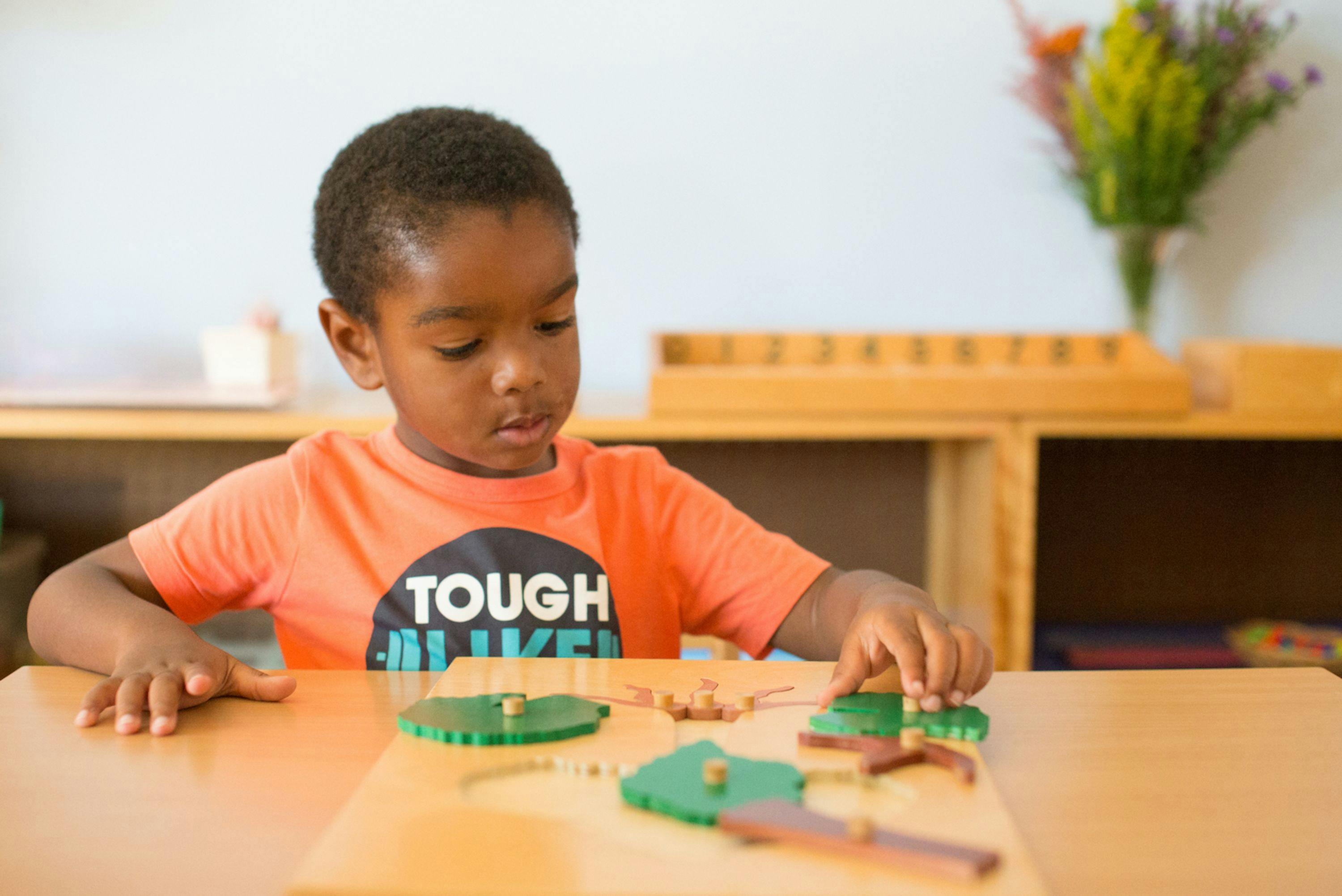Montessori and the Work Environment
One of the ways to make Montessori concepts more familiar is to place them in a modern workplace setting
Bobby George
Montessori is one of those things that often needs to be seen to be believed. This is why Montessori schools typically recommend that prospective families set up a time to observe the classroom in action.
For many of us, especially those who attended a more traditional educational background, the concepts displayed in a Montessori classroom may seem foreign.
How is it possible that children can coexist in a mixed-age classroom, work independently, functional socially and without conflict, while following their interests and excelling on their own terms?
To understand this, it's helpful to showcase Montessori itself — and to exhibit the method's principles in other contexts that have more familiar circumstances for us. Let’s take your typical modern workplace.
Recently, there have been a number of efforts to try to incorporate the lessons of Montessori and apply them to business practices. Perhaps the most famous is Google, the founders of which credit Montessori to much of their success. Former VP at Google Marissa Mayer famously said, “You can't understand Google unless you know that both Larry and Sergey were Montessori kids.”
There are three concepts from Montessori that readily serve as useful guides in this thought experiment.
Prepared Environment
The first is the prepared environment, a concept Montessori pioneered that emphasizes the importance of the environment in setting up students for success. With the right conditions, Montessori believed that children are naturally inspired to learn. If the environment is carefully and thoughtfully prepared, it is created in such a way as to optimize for learning.
How is this exhibited in the workforce? Well, start-ups are a perfect example of creating the types of environments most conducive to exceptional productivity. Well-known examples include open floor plans with sunlight and plants (which require care and thoughtfulness), easily accessible and interchangeable conference rooms and mutable spaces, as well as some of the more luxurious amenities, such as culinary offerings, quiet spaces to concentrate, gyms, etc.
Uninterrupted Work Cycle
The second is the uninterrupted work cycle. Montessori believed that to cultivate concentration — to truly allow children to explore their interests — we must protect their ability to engage in deep and meaningful work for an extended period of time. For many of us, this idea comes as a great relief. How many times were we finally fully immersed in the throws of a math problem when the bell rang and it was time to put away our work and turn to geography or history?
While this may not be a practicality many of our work spaces afford, it does pose an interesting thought experiment. What if we could spend a certain period of each day completely uninterrupted and focused on the task at hand? Imagine not having to interrupt your work with a meeting? What types of productivity could you achieve? Montessori affords all of this, helping to inspire students to be flexible, create independence, and develop a sense of order.
Let’s take what Montessori terms “gatherings.” Instead of having predetermined times to meet, these occurrences happen spontaneously, in the moment, and are conditioned by needs. Instead, so often in the workplace, we look at our calendar, realize that we have an upcoming meeting, and our mind is instantly taken out of the space of concentration. Montessori says of concentration, “Once you interfere, a child’s interest finishes, and the enchantment is broken. It is as though he says, ‘I was with myself inside. But you called me, and so it is finished.’ ” The same is true for concentration in the workplace.
Collaboration
The third Montessori principle to share is the concept of collaboration. In highly competitive work environments, where competition is often envisioned as a necessary component to growth, Montessori offers an interesting and often highly discounted perspective.
The greatest form of competition, for Montessori, is not learning how to compete against your peers, it’s learning how to compete against one’s self. It’s not about performing well on a test to outperform any perceived competition. Rather, it’s about pushing yourself in new directions.
One of the ways Montessori creates these types of conditions is by implementing a mixed-age learning environment where a student is not limited by age or ability. Instead, they are inspired and motivated by their peers, learning how to challenge themselves in a prepared environment that allows for uninterrupted work and the opportunity to collaborate.
Picturing a traditional educational framework, where everyone is working on the same thing at the same time, does this sound like your work environment? Is everyone the same age, working on the same tasks? Or, is there a mixed-age setting where everyone is working together to achieve a set of goals?
Next time you walk around your office, turn to your calendar or collaborate with a coworker on an exciting new project, consider Montessori as a precursor to a new type of thinking — not only about education, but also productivity in the workplace. While Montessori undoubtedly has much to offer children by way of independence, confidence, and social wherewithal, it also has so much to offer the broader and ever-changing world.
Bobby George
Bobby George is the co-founder of Montessorium, Baan Dek Montessori, and June Books.
Sign up for our newsletter
Get started with our community today! Sign up for resources.
